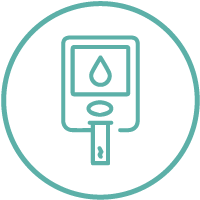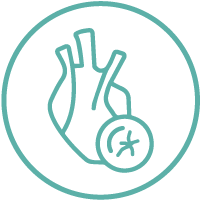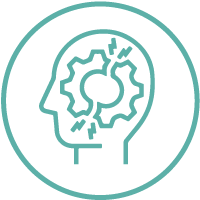Insomnia
Persistent Difficulty Falling and Staying Asleep
Insomnia Severity Index (ISI)
Fill out the below questions to get the results of your ISI

Time's up
Sleep WELL, LIVE WELL
Embracing the Foundation of Good Health
Good night’s sleep is the secret to a healthy life. Sleep is like the foundation of a strong building. We offer you a range of solutions to help you well-deserved sleep.
What is Insomnia?
Insomnia means that you have trouble falling asleep, staying asleep, or both. Various factors can cause insomnia including stress, anxiety, poor sleep habits, or having a cup of coffee before bedtime.
Two main types of Insomnia
1. Acute (lasts for days): Acute insomnia is a brief episode of difficulty sleeping. Stress, changes in your environment, or disruptions in your regular sleep routine can cause this type of insomnia.
2. Chronic (lasts for months): It occurs at least three nights a week for three months or longer. Chronic insomnia can be caused by a variety of factors, including medical conditions, psychological issues, or lifestyle habits.
What are the Symptoms of Insomnia
There are several symptoms of insomnia. These symptoms can help you identify if you are suffering from insomnia.
- Unable to fall asleep
- Feeling tired after waking up
- Waking up a lot and unable to maintain your sleep
- Waking up too soon and unable to resume your sleep
- Headaches
- Low energy
- Irritable and moody
- Lack of concentration
- Feeling sleepy all the time
WHAT HAPPENS?
If Insomnia is left Untreated?
If insomnia is not treated on time, it is likely to become chronic and last for several months. It can also increase the risk of:

Hypertension
A review study by Liqing Li and colleagues that included 395,641 participants found that the risk of hypertension was 1.21 times higher in insomnia patients compared to those who had regular sleep. Similarly, people who suffer from hypertension also are 1.5-3.18 times more likely to have insomnia.

Diabetes Mellitus
A study published in 2018 that included 1311 insomnia patients reported that 21.13% of insomnia patients were suffering from Type 2 diabetes mellitus.

Heart disease
A review that include 389,000 individuals with insomnia found that 31% of the insomnia patients had the risk of developing any type of heart disease. Furthermore, insomnia patients were 48% more likely to have heart attacks compared to healthy people.

Decline in cognitive function
It can also adversely affect your cognitive functions. As a result, it becomes difficult to perform daily functions properly.
Risk factors of Insomnia
Stress, anxiety, depression, and other mental disorders
Consumption of alcohol, nicotine, or other drugs
Uncomfortable surroundings or bedding
Medications
Shift work or jet lag
Lack of physical activity
How can Insomnia be treated?
ISI is a clinically authenticated tool that is used to find out the severity of insomnia and its impact on daily life. It is a self-assessment questionnaire that helps individuals know their sleep routine and the need for expert interference.
- https://www.psychiatry.org/patients-families/sleep-disorders/what-are-sleep-disorders
- https://www.cdc.gov/sleep/about_sleep/key_disorders.html
- https://www.sleepfoundation.org/insomnia
- https://www.nhs.uk/conditions/insomnia/
- https://www.healthdirect.gov.au/insomnia
- https://pubmed.ncbi.nlm.nih.gov/33360604/
- https://pubmed.ncbi.nlm.nih.gov/21731135/
- https://pubmed.ncbi.nlm.nih.gov/17326547/
- https://www.sciencedirect.com/science/article/abs/pii/S1389945718300650
- https://journals.plos.org/plosone/article?id=10.1371/journal.pone.0291859



